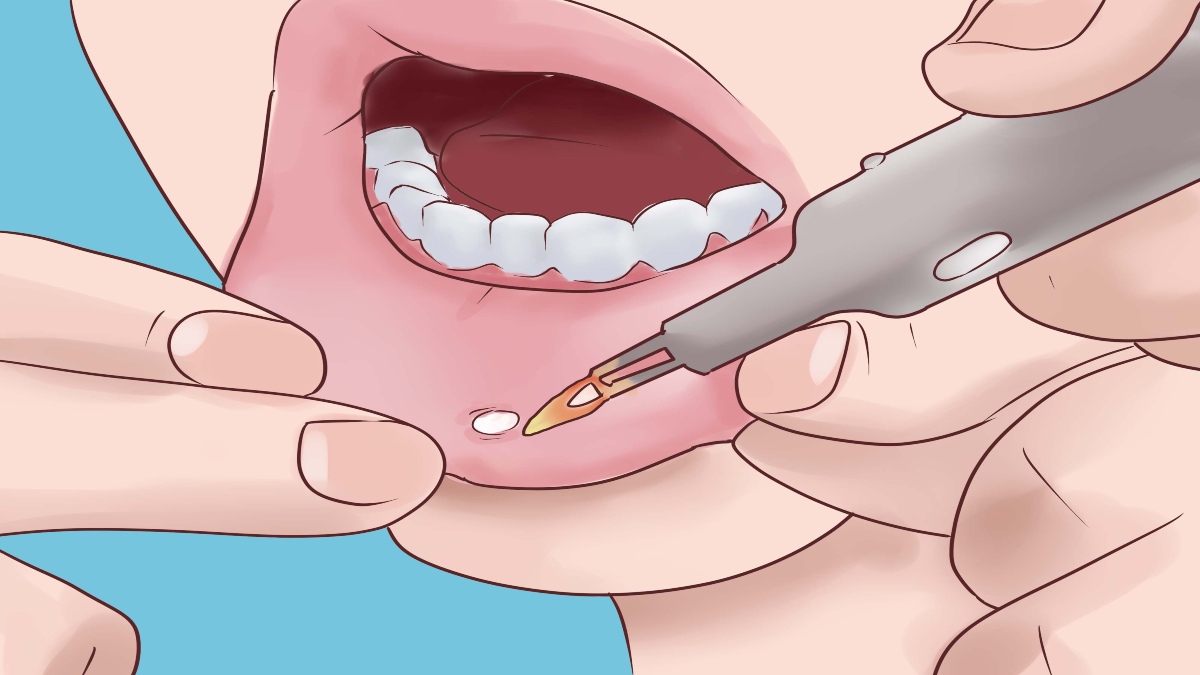


Mouth ulcers are quite common in all age groups and can make regular activities such as eating, drinking, and talking very uncomfortable. However, mouth ulcers can be cured with antimicrobial or painkilling mouthwash, gel or spray. However, if the ulcers persist for several weeks even after treatment, one must not ignore the signs as it may indicate a cancerous growth. There are many signs of mouth cancer but red sores that do not respond to treatment or heal is a telling sign. Lifestyle habits such as drinking alcohol or consuming tobacco—both smoked and smokeless—can cause cancer of the mouth. Besides human papillomavirus (HPV), known to cause sexually-transmitted infections (STI) and cervical cancer, can also cause mouth cancer. HPV-affected mouth cancer is seen in the soft palate, tonsils, base of the tongue, and pharyngeal wall areas.
SYMPTOMS OF MOUTH CANCER
1. Persistent and unexplained lumps in the mouth or the neck
2. Unexplained loose teeth or sockets
3. Unexplained, persistent numbness on the tongue or lips
4. White or red patches on the lining of the mouth or tongue
5. Changes in speech like lisp
The types of mouth cancer are categorised by the type of cell it starts to grow in. Medically it is known as carcinoma. The most common type is squamous cell carcinoma that affects 9 out of 10 cases of mouth cancer.
LESS COMMON TYPES
1. Adenocarcinoma in which cancer develops inside the salivary glands
2. Sarcoma in which cancer develops from the abnormalities in cartilage, bone, muscle, or any other tissue
3. Oral malignant melanoma in which cancer starts in the cells that produce skin pigment (melanocytes). They often bleed and appear as dark, mottled swellings
4. Lymphoma in which cancer grows from cells in lymph glands
Mouth cancer as well as treating it can cause complications and affect the appearance of the mouth. Besides, it can cause dysphagia (problems with speaking and swallowing). Dysphagia can be a serious complication. If a small piece of food enters the airways when you try to swallow and gets lodged in the lungs, dysphagia may lead to aspiration pneumonia (a kind of chest infection).
PREVENTING AND TREATING MOUTH CANCER
Cancer of the oral cavity (lips, tongue, buccal mucosa, tonsils, and palate) can give rise to various complications that include difficulty in eating, speech, alteration in voice, inability to open mouth fully, pain in the ear, and bleeding if not treated in time.
Easy lifestyle changes and preventive measures including but not limited to the following can help in preventing mouth cancer in most people:
1. Quit smoking or consuming smokeless tobacco as well as alcohol
2. Get vaccinated against HPV
3. Using a condom during oral sex to lower the chances of HPV infection
4. Visiting a dentist regularly for screening
5. Consuming a balanced diet of fresh vegetables (especially tomatoes), citrus fruits, olive oil, and fish with omega-3 fatty acids
If diagnosed early, mouth cancer can be completely cured in 9 out of 10 cases using surgery.
The writer is working in Clinical Oncology, Columbia Asia Hospital, Palam Vihar, Gurgaon.